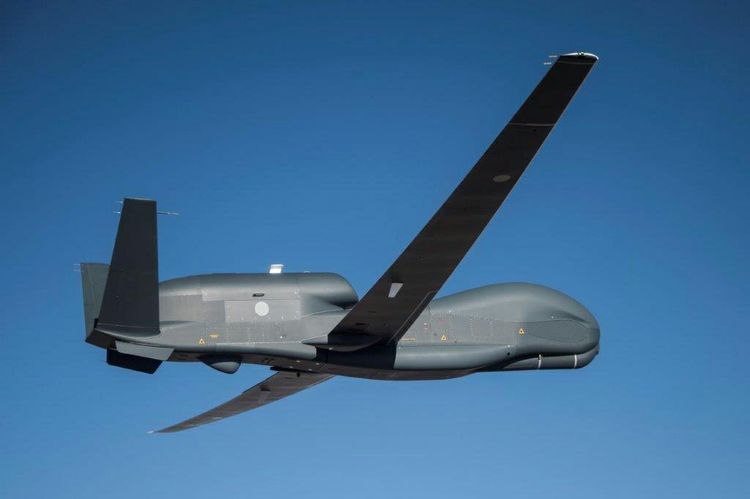
Northrop Grumman has conducted the maiden flight of Japan’s RQ-4B Global Hawk unmanned air vehicle (UAV) from Palmdale, California, US.
Japan is procuring three RQ-4 Block 30 (I) via the US foreign military sales programme.
Following its deployment with the Japan Air Self-Defense Force, the UAV will be combined with other Japanese intelligence platforms, as well as the ground-based command and control units.
The asset will improve Japan’s intelligence, surveillance, and reconnaissance (ISR) capabilities and monitor and deter regional threats.
Northrop Grumman autonomous systems vice-president and general manager Jane Bishop said: “The unarmed RQ-4B Global Hawk will provide Japan with on-demand intelligence, surveillance and reconnaissance information supporting the Japan Air Self-Defense Force’s missions of protecting borders, monitoring threats and providing humanitarian assistance in times of need.
“This successful first flight is a significant milestone in delivering Global Hawk to our Japanese allies.”

US Tariffs are shifting - will you react or anticipate?
Don’t let policy changes catch you off guard. Stay proactive with real-time data and expert analysis.
By GlobalDataThe RQ-4B is a high-altitude, long-endurance unmanned aerial reconnaissance system designed to provide high-resolution imagery of large geographic areas in near real-time for military field commanders.
It has a larger wingspan and longer fuselage, and new generator. The RQ-4 has a range of more than 12,300nm, can fly up to 60,000ft and remain airborne for over 32 hours.
Northrop’s autonomous high-altitude, long-endurance (HALE) systems family, including Global Hawk, are a key component of global ISR data collection for allied nations and mutual defence organisations across the world.
The US, Australia, Nato and Korea are other operators of Global Hawk.
Last December, Northrop conducted the RQ-4 Global Hawk’s first flight using the new modernised ground station.



